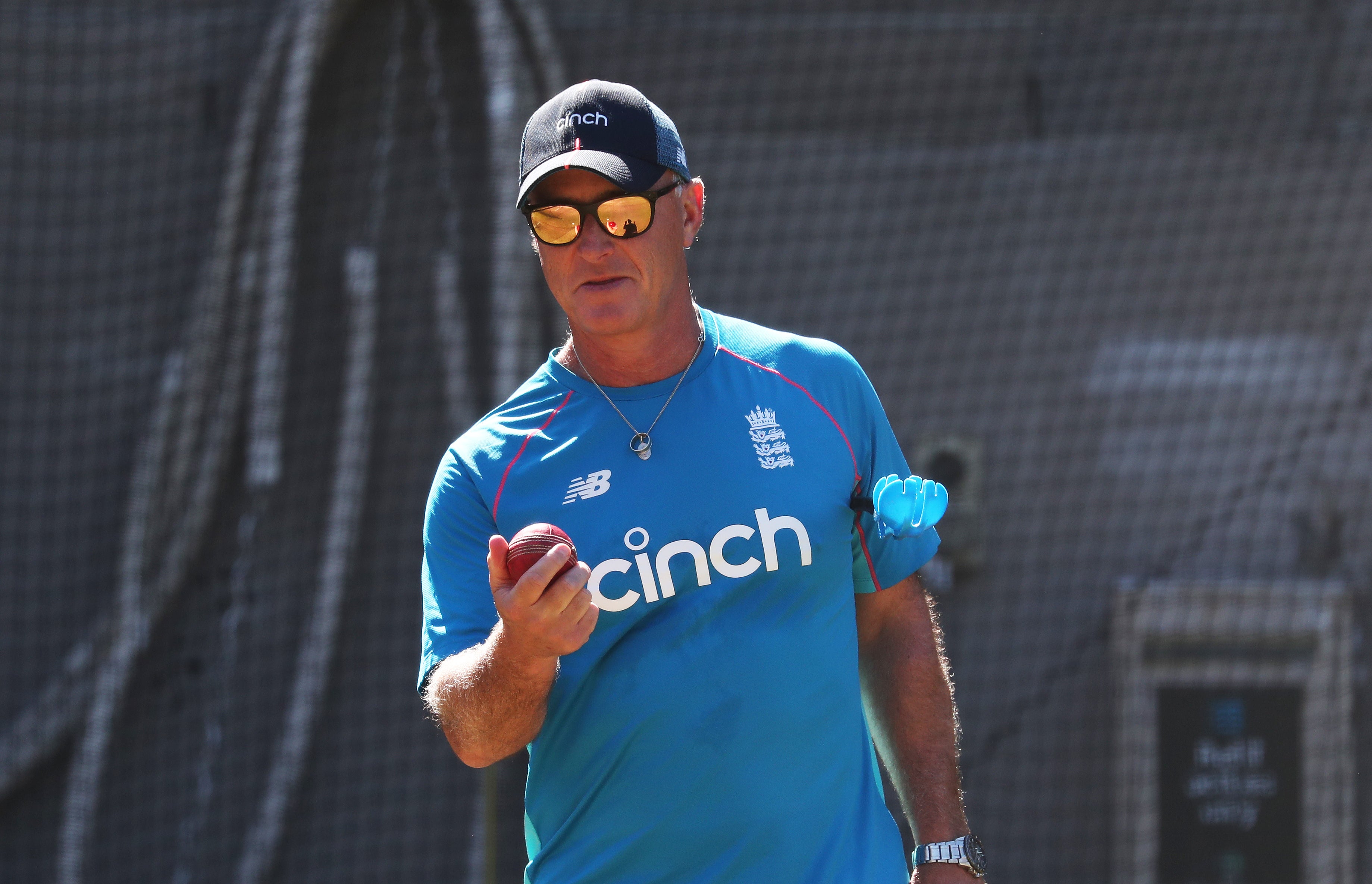
There were “failings” in the provision of care to former England cricketer Graham Thorpe in the months before he died, a coroner has said.
Speaking at the inquest into Mr Thorpe’s death, Coroner Jonathan Stevens then recorded a conclusion of suicide.
The 55-year-old died on the morning of August 4 2024 after being struck by a train at a railway station in Surrey.
An inquest at Surrey Coroner's Court in Woking heard Mr Thorpe had "spiralled into depression" after losing his job as a batting coach in 2022, and he had tried to take his own life on another occasion.
Coroner Jonathan Stevens said at the inquest the last time Mr Thorpe was seen in person by healthcare professionals was on March 26, 2024.
After missing an appointment with the community mental health team on June 28 that year, care co-ordinator Katie Johnson spoke to Mr Thorpe's wife Amanda on the phone who said her husband was "constantly asking for help to end his life", the court had heard previously.
Ms Johnson then spoke to Mr Thorpe who told her he "hadn't been out for a while" and "didn't see the point of being here" but had no immediate plans to act on suicidal thoughts, the inquest was told.
The coroner said appointments were offered to the cricketer but he "found it hard to attend these" because of his mental health, and in his judgment Mr Stevens said "someone should have gone to see him to properly monitor and assess him, to do a face-to-face risk assessment and understand and address his care needs as required by the care plan".
He added that saying "come see me in two weeks" was "not an appropriate response".
In May 2023 Mr Thorpe had suicidal thoughts and was given in-patient treatment, and Mr Stevens said "some similar protective measures should have been considered in June 2024".
Mr Stevens said: "In my judgment there were shortcomings in the care that should have been provided to Graham in the last four months or so of his life."
He added, "there were failings in the provision of his care" but said he cannot on the evidence conclude the failures were gross, and therefore could not conclude that if it were not for the failures, Mr Thorpe would not have died.
The coroner said there was no evidence upon which he could make a finding of neglect in the case.
Mr Stevens added: "It's clear there were shortcomings in his care. If he had been seen in those last four months, particularly after that incident on June 28, I cannot say whether it would or would not have made any difference."
Earlier on Friday, the inquest heard Mr Thorpe was not perceived to be in a “crisis situation” by healthcare professionals after they were told he had been asking his wife “for help to end his life” weeks before he died.

Ms Johnson then spoke to Mr Thorpe who told her he “hadn’t been out for a while” and “didn’t see the point of being here” but had no immediate plans to act on suicidal thoughts, the inquest heard.
An investigation was carried out by Surrey and Borders Partnership NHS Foundation Trust after his death, which details a number of findings and recommendations.
Dr Shriti Burgul, a consultant psychiatrist who reviewed the investigation’s report before it was finalised, told the court on Friday that one of the findings was that “it was noted that Graham’s presentation at his appointment on 28 June 2024 was in keeping with previous presentations and not perceived by the team as a crisis situation”.
Given the conversation was over the phone, the psychiatrist was asked if it would have been appropriate to arrange to see Mr Thorpe very quickly.
She said: “In the wisdom of hindsight, then yes, a home visit would have been clinically indicated,” adding: “I think the team’s view at that point was this was part of his chronic presentation.”
Dr Burgul was asked if arranging an appointment for two weeks was an appropriate response and she said in the absence of Mr Thorpe expressing “active intent” or an “active plan”, it would be appropriate to allow two weeks.
She said Mr Thorpe was not at the level of requiring intervention from the home treatment team.
The psychiatrist was asked if there was any evidence that if there had been an in-person assessment for Mr Thorpe, there would have been a different outcome, and she replied “no”.
The investigation noted that a letter from when Mr Thorpe was discharged from a private hospital in July 2022 said a neuropsychologist should be identified to provide further support, the inquest heard.

This was never done by the private provider or the GP, and a risk panel advised it should be explored in June 2024, Dr Burgul said.
Asked whether there was any neuropsychological impact that could have affected the cricketer’s ability to engage in appointments, given he missed some, the psychiatrist said “it’s a possibility, yes”.
Mr Thorpe’s cause of death was recorded by a pathologist as multiple injuries, the coroner said.
The inquest previously heard that while on tour in Australia, there was an “incident involving a video that was taken that had adverse publicity”.
Mr Thorpe shared a video with some friends which was leaked, and the incident was “blown out of all proportion”, leaving Mr Thorpe “distraught”, Ms Thorpe said.
According to reports at the time, the video, filmed after a dismal Ashes series which England lost 4-0, showed Tasmanian police breaking up a drinking session involving both England and Australia players.
Ms Thorpe described it as a “horrible” time, and said the later termination of his employment with the England and Wales Cricket Board was a “real shock to Graham”, which was the “start of the decline of his mental health”.
Mr Thorpe was a mainstay in the England set-up for many years, first as a batter between 1993 and 2005 before spending 12 years in coaching roles.
During a distinguished international career, he struck 16 Test hundreds for England, including a debut century against Australia at Trent Bridge in 1993, and represented his country 182 times in all formats.
If you are experiencing feelings of distress, or are struggling to cope, you can speak to the Samaritans, in confidence, on 116 123 (UK and ROI), email jo@samaritans.org, or visit the Samaritans website to find details of your nearest branch. If you are based in the USA, and you or someone you know needs mental health assistance right now, call or text 988, or visit 988lifeline.org to access online chat from the 988 Suicide and Crisis Lifeline. This is a free, confidential crisis hotline that is available to everyone 24 hours a day, seven days a week. If you are in another country, you can go to www.befrienders.org to find a helpline near you.







